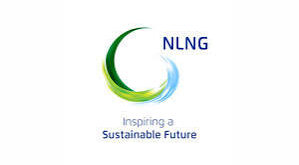By Godwin Chukwumaechi
The Rivers State Tax Justice and Governance Platform (TJGP) in collaboration with her partners, Christian Aid (CA) and the Civil Society Legislative Advocacy Center (CISLAC), have called on the National Assembly to urgently investigate all International Monetary Fund, IMF, loans received by the country.
The call is necessitated by the escalating debt burden being incurred by the Nigerian government and its attendant effect on the economy and the populace, in the face of the unprecedented spiraling inflation in the country.
The group said the escalating debt burden has profound implications for the well-being of Nigerian citizens, and failure to act quickly could result in an additional 23 million Nigerians living in poverty and 80 million working-age citizens without full-time jobs by 2030.
Amaechi Kelechi Justin, Rivers State Lead, Rivers State Task Justice and Governance Platform made the call while briefing journalists in Port Harcourt saying that Nigeria is in dire revenue situation as it appears to be short of ideas on the approach to fiscal management.
He explained that the trajectory of revenue from the federal government shows a continuous decline in the past 5 years with a 45% revenue shortfall in 2018, a 45% shortfall in 2019, 31% in 2020 and 45%, 41% and 50% in 2021, 2022 and 2023, respectively, stressing that these revenue shortfalls have created budget deficits that have precipitated the debt crisis shooting up the country’s external debt by 1,333% from the level it was after the Paris Debt buy-back-deal in 2005/06.
The group said the concerning trends underscore the need for the National Assembly to urgently commit to sound reforms and balanced resource allocation, thereby paving the way for significant investment in critical sectors that directly impact the lives of vulnerable Nigeria.
The Rivers State Task Justice and Governance Platform recommended that the National Assembly should commit to, “investigating the movement and spending of loans received by the Federal Government in the past and present administrations, including but not limited to the $3.4 billion loan obtained from the International Monetary Fund (IMF) as reported in the 2020 annual audited report published last week by the Auditor-General of the Federation.
“Revising legal and institutional frameworks related to debt management, emphasizing transparency and accountability. This includes accelerating the amendment of the Fiscal Responsibility Act (FRA) 2007.
“Redefining the purpose of incurring debts in clear terms of debts being for projects that will promote value chain development, improve the macroeconomic framework, develop infrastructure, and build strategic human capital. This will imply a deletion of the amendment in the 2021 Finance Act which introduced an omnibus new term called “national interest” as justification for borrowing”.
It added: “Stopping borrowing for recurrent expenditure (personnel and overheads) and dilatory capital expenditure that adds no value to economic growth, wealth creation and development.
“Strengthening debt sustainability assessments through public debt review mechanisms to assess the affordability and risks associated with new borrowing initiatives.
“Harmonizing tax laws and rates to reduce overlaps and inconsistencies, eliminate multiple taxation and improve tax revenue mobilization”.
It stressed that Nigeria should adopt a comprehensive approach to taxation which categorizes taxes to income, consumption and property tax saying, “every tax should fall under these three categories rather than having all manners of taxes all over the place which are set out to extort business owners rather than generate revenue for the government”.
The group further urged the National Assembly to, “Establish a Tax Committee empowered to approve Double Tax Agreements rather than the general floor of the National Assembly, proposing that the Committee should be empowered to monitor and evaluate existing tax treaties and agreements between jurisdictions to make data available for government decisions.
“Revise and harmonise tax incentive frameworks that provide for clarity of policy goals of incentives, the periodic assessment and monitoring of tax incentives using a monitoring and evaluation framework, assessment of cost-benefit and distributional impact, and guidelines for timely reporting of tax expenditures.
“Reduce discretionary powers of executive institutions with statutory mandates and powers to regulate tax incentives and ensuring that granting of major incentives go through parliament.
“Introduce appraisal mechanisms that ensure budget performance is a reflection of the value created and not indication of funds released to MDAs”, among other recommendations.
 PH Mundial – Port Harcourt Online Newspaper News Across The Region
PH Mundial – Port Harcourt Online Newspaper News Across The Region





